Exploring the digital world is a reality for most of us today, but for underserved communities, access to the internet remains a challenge. However, a beacon of hope shines bright in Houston as Baylor College of Medicine’s student-led Digital Equity Program, in collaboration with Link Health, steps up to bridge the gap. Two extraordinary third-year medical students, Nicole Nyamongo and Selena Guo, are championing this noble cause, bringing essential resources to those who need them the most.
The digital divide hits harder on Black and brown communities, especially those in lower-income households. Telehealth services, healthcare management, and communication with health professionals are all hindered by the lack of affordable internet access.
“Internet access is a super social determinant of health,” says Nyamongo. “Without it, many are left behind, unable to leverage telehealth services or even access their patient portals.”
This inequality has been magnified during the COVID-19 pandemic, where the transition to online services left many individuals without the necessary tools to engage with their healthcare providers. Nyamongo and Guo, both fellows in the Digital Equity Program, are working tirelessly to ensure that low-income residents in Houston gain access to low-cost broadband through the federal Lifeline program.
“Our primary focus is on directly engaging with the community,” explains Guo. “We participate in community health fairs, back-to-school events, and set up clinic booths to enroll eligible patients for Lifeline. It’s not just about providing internet access; it’s about giving them a lifeline to vital health resources and, in some cases, a lifeline to their well-being.”
The impact of their work is already tangible. Over the past year, the Link Health Houston team has assessed over 9,600 patients for eligibility, resulting in many households gaining internet access at a reduced cost. These efforts are critical for Houston, where an estimated three million households qualify for the Lifeline program, yet only 8% are enrolled.

Guo recounts a touching encounter with a patient at a public hospital, a refugee with limited English and income.
“She was worried about her job, family, and income—matters beyond her immediate health,” Guo remembers. “The forms and resources she needed were online, but she didn’t even have a phone. It underscored to me the critical nature of internet access, particularly for vulnerable individuals.”
Nyamongo adds, “Health professionals often assume everyone has internet access, but that’s not the reality. Our mission is to raise awareness and help people tap into the available resources.”
Strong partnerships with the community, including Baylor College of Medicine, the University of Houston, and Legacy Community Health, have been the driving force behind the program’s success in Houston. These collaborations ensure the program’s longevity and reach, involving undergraduate and medical students citywide.
Looking ahead, the program aims to expand its outreach through both physical and virtual means to connect with more residents.
“We have started using text messages to reach out to patients, connecting them with ambassadors who can assist them in signing up for federal benefits,” says Guo. “This virtual approach has enabled us to screen more people, reaching those who may not attend events or visit clinics.”
For Black and Brown communities in Houston, the Digital Equity Program signifies more than just an initiative; it’s a step towards reducing health disparities and empowering individuals to take charge of their health.
“Our work transcends internet access,” Nyamongo stresses. “It’s about ensuring that everyone, regardless of income or background, has the tools to lead healthier lives.”

